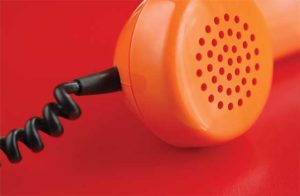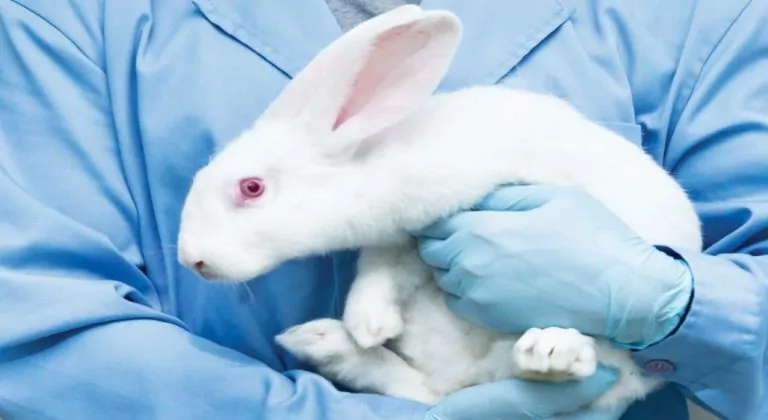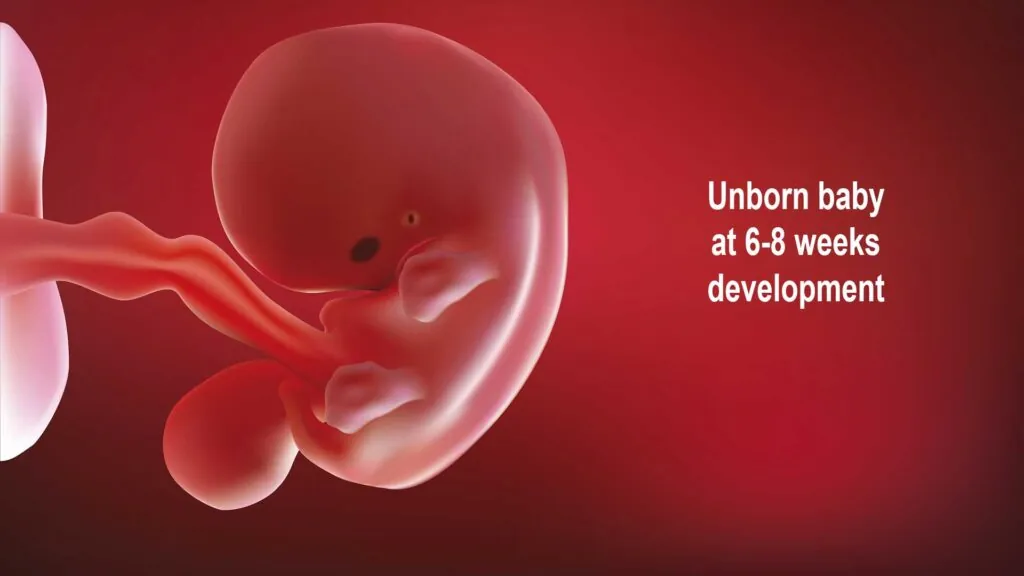I remember the days of old; I meditate on all Your works; I consider the work of Your hands. (Ps. 143:5)
*****
Hope deferred, Proverbs 13:12 says, makes the heart sick. There are none who know this better than those who have hoped for a child month after month, only to be disappointed again and again. It is a sad thing to see young couples, when first married, opting for time to get settled, opting for the “security” of two jobs, opting for the “want” of more things, before they finally think they can opt for a family. Sometimes this family does not happen – the timeline they have posited is not the timeline which has been designated by God.
The second half of Proverbs 13:12 tells us that “a desire fulfilled is a tree of life.” No one understands this second part better than a Hannah, a woman who has prayed for a little one and who finds out one day that she is indeed to be a mother.
We had been married for two years when our desire was fulfilled. Suspecting for a week or two that this was perhaps the case, but having been disappointed before, we did not really think that the rabbit test would prove to have joyous results.
For those unfamiliar with the term, a “rabbit test” was a pregnancy test that would surely be strenuously objected to by the extremist PETA-type people today. It was a test in which a female rabbit was injected with a woman’s urine. If the woman was pregnant, her urine would cause the rabbit’s ovaries to develop temporary tissue structures. A doctor, or lab technician, could check this out after the rabbit was euthanized.
We were visiting my Dad and Mom in Fruitland, Ontario, at the time of the rabbit’s demise. It was December 1971. My husband was outside shoveling snow from the small sidewalk before tackling the long parsonage driveway. I was inside, doing some dusting for my Mom. She was in the kitchen. My father was in the study. It’s strange how some details stick in your mind. The phone rang and since I was standing right next to it, I picked up the receiver. It was the nurse from our doctor’s office in Guelph. My husband and I had been half expecting the call, half not expecting it.
“Could I speak with Christine,” she said.
“Speaking,” I answered, beginning to sweat.
“Your test has come back positive,” she went on, and then stopped speaking.
Positive, I thought, and the word appeared as a foreign language to me. I dared not hope that positive meant pregnant. So I merely repeated the word, adding a question mark.
“Positive?”
I stroked the colorful runner on top of the dresser next to the phone. My Mom had made the runner and it felt warm underneath my fingers.
“Yes, positive. And the doctor would like to see you for a check-up sometime in January.”
“You mean I’m ….” I let the sentence dangle unfinished.
“Yes, you are pregnant. There’s no doubt about it.”
“Are you sure? I mean….” Again I could not finish the sentence.
“Yes.”
Her answer was short. No doubt she had more work to do, possibly more phone calls to make.
“Thank you.” I half-croaked the words, meaning to say “Thank you for the phone call,” but the sentence would not come out in its entirety because of the thickness in my throat. And oh, there are hardly words to describe the thanks I felt welling up inside me to God. Tears coursed down my cheeks.
Special insight into God’s character
The truth is that God has allowed mothers a special glimpse of His character, of His all-encompassing love, in permitting them and giving them the capacity to bear children. “As one whom his mother comforts, so I will comfort you,” the Lord says to His people in Isaiah 66:12. There is a well of love which springs up naturally within a woman; there is a depth of nurture which was always there, as woman was in the beginning made to be the “mother of all living.” It is a sense which is good and true. That is not to say that this innate sense cannot be suppressed. Indeed, many women do suppress it, to their own detriment. Like the miser who died in penury while his money was buried unused in his backyard, these women will die in poverty while their motherhood lies buried underneath abortion, careers, self-fulfillment, day-care centers, nannies, TV babysitters, computer games, and multitudes of outside-of-the-home programs.
Walking over to the window, I tapped on the pane. The tears were still running down my cheeks. Anco turned around at the sound, leaning on the snow shovel. He looked at me and raised his eyebrows in a questioning glance. I nodded and sobbed. His eyebrows went down and he smiled. My mother came out of the kitchen and I told her that the doctor’s office had just called and that we were going to have a baby.
She called my father out of the study and he stood in the livingroom doorway and just looked at me. All he could say was “Well, well!!” and again, “Well, well!!” Then he disappeared into the study only to reappear shortly afterwards with a Dutch book entitled Moeder en Kind, that is to say, Mother and Child. He put it on my lap, as I was at this point sitting in a chair in the livngroom drinking a cup of tea with my mother. Anco had come in, had hugged and kissed me and had gone back out to shovel snow.
“This book,” my father explained, “greatly helped your mother when she was expecting you and your brothers and sisters.”
“Oh, Louis,” my mother smiled, “that’s a really old book. They have different books now with a great deal more information.”
I laughed and thanked my Dad. The book became a treasured part of my library and I read it carefully.
Beer barrel bassinet
It was a providential thing that there was no morning sickness. The only “abnormality” I developed was a strong craving for peanut butter and banana sandwiches, as well as a constant desire for hard-boiled eggs. Also, if I stood for an indeterminate amount of time in one spot, a lightheadedness took over. Nevertheless, I was quite able to continue my job as secretary in the Political Studies Department of the University of Guelph until two weeks prior to the baby’s birth. Anco was, at this time, a second-year student in the Veterinary program at the University and carried a full slate of subjects which often required cramming late into the night. In spite of that, he was able to craft a cradle – a cradle fashioned out of an old beer barrel which we salvaged from someone’s garage. It turned out to be a most beautiful piece of work until he inadvertently took off one of the iron bands around the barrel nearly causing all the pieces of wood to spill off. Angie Traplin, our seventy plus landlady, was most gracious in that she permitted us the use of her garage as a woodworking shop, and she and her bachelor brother, John, followed the progress of the cradle with great interest. They had no children in their lives and shared in the excitement we so obviously exhibited.
People are unconditionally kind to you when you are pregnant. They often offer you their chairs, thinking your condition requires you to sit down all the time, and frequently ask if there is something which you would like to have. Neither Reformed nor unReformed, being pregnant is, in a sense, like having a “get-out-of-jail free card.” If you land in a ticklish situation, it is possible to use your “condition” to get you out of this situation. For example, no matter at what hour you are tired, you will be allowed to take a nap; if you don’t want to play charades, you will be excused; if you don’t want to eat your spinach, that will be tolerated. And the list goes on.
A “model” student
In Holland, my mother had born all her children at home and my father had always been right there by her side, (except one time when she had delivered the baby all by herself while he was still running for the doctor).
During the early 1970s in Canada, however, husbands were reckoned taboo in the delivery room. But Anco stood a chance of being permitted in to see our child born if he attended pre-natal classes. So we enrolled together in one of these classes. There were approximately ten other couples in the class. Companionably we watched a film on childbirth, oohing and aahing at all the right spots; and together we received pep-talks on exercise, nutrition, and relaxation. Into the third class we were told to select music that we really enjoyed and to use it as we were practicing simulated labor pangs. Lying flat down on the floor on a blanket, as Vivaldi’s Winter or Beethoven’s third piano concerto played, Anco, sitting next to me on the floor, would squeeze my right arm softly, indicating the onset of a simulated pain. I would then have to take a deep, cleansing breath and begin to relax my whole body. The woman who ran the pre-natal class would come along checking each prostrate couple to see if the mother-to-be was thoroughly relaxed. Legs, knees and arms would need to be floppy enough to fall right down again if she lifted them. As Anco squeezed my arm tighter and tighter, my breathing was to become shallower and shallower, using only the diaphragm, and my whole body was supposed to become as relaxed as a bowl of jello. This was difficult and though I don’t think I ever totally reached the jello state, I did achieve a sort of pudding-like easement before our final class. This class included a tour of the hospital as well.
In the class we were also taught how to walk and not “waddle,” in the words of the instructor. We were shown how to pick things up properly, not bending over double but bending down through the knees. We were also told how to stand properly – belly tucked in, back straight.
“You. Yes, you, Mrs. Farenhorst. Can you step to the front of the class, please.”
It was not a question. So I stepped out of the group line and walked towards the front.
“This class,” the instructor said as I stood next to her, “is a perfect example…. (I think I began to smile proudly here, until she continued) …a perfect example of how not to stand.”
Fatherly advice
As the months crept on, much advice was proffered on what to eat and what not to eat. My father-in-law constantly told me not to use salt, whereas my own father told me to eat more and brought me pieces of Gouda cheese, hard-boiled eggs and fish. And while I grew in girth, Nixon became president of the United States, Trudeau continued on in Canada, my mother sent for reliable cloth diapers from Holland, and God reigned supreme.
That summer of 1972, Anco obtained a job with the Grounds Department of the University of Guelph. This was a wonderful blessing because we could continue to travel in to work together as well as eat lunch together. We often sat in the shade of the campus trees at noon or we would walk over to our little blue Datsun and eat lunch in it after which I would have a small nap. There was an active mother kildeer on the parking lot. She had built a nest somewhere on the gravel. Feigning a broken wing, the bird would try to lead us away from the nest, emitting a shrill, wailing killdeer, killdeer sound. Although it would only take twenty-four to twenty-eight days for her eggs to hatch compared to my nine months, I felt a great affinity with the protective mother as she ran helter-skelter across the parking lot.
It was a warm summer. I had begun knitting that previous December. As the little stack of booties, sweaters, and blankets grew, so did my stomach. Gaining between forty-five and fifty pounds, I felt there was much more to me than met the eye. Although I spoke to the baby continually, and she kicked fiercely in response, it was still difficult to imagine that a little flesh-and-blood baby would actually occupy the beer barrel before too long.
Beyond amazing
But on Sunday, August the fifteenth, we definitely knew that something was up, or rather down. We were also extremely thankful that it was a weekend. After all, Anco was home and what a relief that was to me! But aside from a heavy, low backache, and intermittent pains, nothing happened – even though we stayed up all night, nothing happened! The doctor told us, the next morning, that we ought to check into the hospital by supper time and that I ought to eat nothing for supper. Anco went to his landscaping job, poor fellow, with rings under his eyes. And that evening we checked into the hospital.
After registration and an enema, (from the last two letters in that miserable word, I have surmised that an enema is a Frisian procedure), a nurse confirmed that I was, without any doubt, in labor. At this point, I had somehow begun to doubt that I was actually pregnant, so I was quite happy to hear her confirm the fact. After being installed in a room, Anco was finally allowed to join me. He looked a little nervous. I assured him that I was fine and so I was for the rest of that evening. We had brought along a book entitled The Joys of Yiddish, and Anco read me jokes, talked to me and we had a relatively peaceful time of it. As a matter of fact, the obstetrics nurse, who was in and out of our room, joked that I might be one of those unusual mothers who give birth with relative ease.
Our doctor came in to check me around midnight and Anco was asked to leave the room. The doctor was a tall, thin man with a pale complexion and a wispish smattering of reddish hair. Blue-eyed, as well as slightly cross-eyed, he peered at me from the foot of the bed after he had examined me. The nurse, who had become an exceptionally close friend by this time, had held my hand throughout the procedure.
“Well, Christine,” the doctor informed me, “I’m going to break your water.”
The nurse squeezed my hand very hard but said nothing. The doctor then produced a mile-long needle out of nowhere and without wasting any more words, proceeded to break my water. As he was leaving the room, he commented to the nurse, “This one will be an all-nighter.”
It was a very uncomforting thing to say and to hear, but I did not have much time to reflect on it. The next eight hours plus were hard work. It was what my mother had told me when I had asked her what labor was like. “It’s hard work, Christine. Just plain hard work and you have to roll up your sleeves and do it.”
Well, I couldn’t really roll up my sleeves. The hospital pajamas were too short. But I did remember the breathing exercises and together with Anco’s help became as relaxed as I could. My poor husband was so weary. It was the second night straight that he was not getting any sleep. Yet the words “Weeping may tarry for the night, but joy comes with the morning” (Ps. 30:5) flowed around us and rang true for at approximately 8:20 the next morning when little Emberlee Kristin lustily cried her way into the arms of her smiling father and mother.
From the labor and delivery room I was wheeled into a ward – a ward which three other mothers already occupied. Snug in a corner, I considered myself blessed to be next to a window. I had seen and held the baby for a moment, but had not really studied her closely as yet. When a nurse brought her in to me a bit later, I was absolutely amazed.
Actually, amazed is too small a word. I had the feeling that, through God’s help, I had achieved something which nobody else in the whole world had achieved before. This baby was incredibly beautiful! And although I thoroughly believed the doctrine of “conceived and born in sin,” I was convinced that she was perfect. Anco totally agreed with me before he went home to sleep. Then the nurse took the baby to the nursery and I also drifted off to sleep – a wonderful sleep, a sleep in which I conquered both Mount Kilimanjaro and Mount Everest and had energy to spare.
Four at a time
The head nurse of the obstetrics department, a woman whose name escapes me but whose militant figure will always remain embedded in my brain, was a dragon. A short lady with grey, tightly curled, hair and glasses perched on the end of her nose, she breathed fire on any mother who did not explicitly follow the rules of her ward. When it was time to feed the babies, she would carry them in – all four at the same time, two under each arm. We were always fearful that she would drop one, but she never did. Depositing the babies on the beds like so many loads of diapers, she would bark: “Make sure you begin on the side you finished on at the last feeding. Time yourselves carefully! And remember, not a minute longer than designated!”
The afternoon of the day I had the baby, the head nurse came in to inquire if I had as yet showered. When I shook my head, she regarded me balefully and clapped her hands.
“Up, up then, Mrs. Farenhorst! No shilly-shallying mind you! Up you go! The shower is just around the corner down the hall.”
I was a trifle lightheaded and actually had the gumption to tell her so. She clucked at me disapprovingly. “Come, come! Don’t be a baby. I’ll be back shortly to check whether or not you’ve had the shower.”
There was nothing for it but to get up, put on my bathrobe and take a towel from the adjacent bathroom I shared with the three other women. Walking down the hall, holding on to the wooden railing attached to the side, I could feel that I was not quite up to the stroll. Then everything went black and the next thing I knew was that I was lying flat on the linoleum and a nurse was bending over me. “Are you all right?”
Perhaps it was this small episode that earned me demerit marks in the eyes of the head nurse. In any case, she had me pegged as a failure.
No exceptions!
Visiting hours were strictly adhered to. My parents were in Holland and Anco’s parents were in Australia that August, so visiting hours were poorly attended. But my oldest brother and his family drove down all the way from Collingwood to Guelph, a good hour and a half away, to visit me. They did not, however, arrive during the specified hours allocated to visitors. Sneaking up the back stairs, all five of them peeked around the corner of my room and grinned at me, lifting my spirits. “Hi, Christine”, and “Hi, Tante Christine”.
 Immediately after the greeting, my spirits sank again and terror struck me with the thought that the head nurse would see my brother, his wife and their three children and proceed to pulverize them. I fleetingly thought of hiding them all in the bathroom, but they had stepped into the room and were around my bed before you could recite the proverbial phrase “Jack Robinson.” The hugging and kissing prevented me from properly formulating a plan. And then the dragon appeared behind them.
Immediately after the greeting, my spirits sank again and terror struck me with the thought that the head nurse would see my brother, his wife and their three children and proceed to pulverize them. I fleetingly thought of hiding them all in the bathroom, but they had stepped into the room and were around my bed before you could recite the proverbial phrase “Jack Robinson.” The hugging and kissing prevented me from properly formulating a plan. And then the dragon appeared behind them.
“What are you doing here?” If there was one thing about the head nurse, it was that she kept a sharp eye out and hardly anything went by her unnoticed.
“Er …. this is my brother and his family.”
My brother, ever the chivalrous gentleman, walked up to the dragon without any trace of fear, and extended his hand. “How do you do?”
She totally ignored the hand and wagged a finger at me. “You know the rules. No one is to visit during the day!! No one!!”
“But they drove all the way from ….”
She did not let me finish. “Visiting hours are in the evening.”
“That’s all right. We’ll leave,” my brother soothed, “but perhaps we could see the baby?”
The dragon, however, had turned around and left, muttering to herself as she went, and his question remained unanswered.
“The nursery is just down the hall,” I said, “and Emberlee is lying on the left side right in front of the window. If you walk out that way, you can see her.”
They kissed me again and waved goodbye. I accompanied them to the door of my room and watched them pace away down the hall eager to admire the baby. But the dragon had preceded my brother and his entourage and, just as they reached the nursery window, she closed the curtains. They turned around to wave to me again, shrugging as they did so, and left.
Close to tears, I was about to get back into bed, when the head nurse made another appearance. “Do you realize, Mrs. Farenhorst,” she remarked, hands on her hips, face right in front of me, “how many germs you are now carrying because you kissed your relatives?”
It was an interesting question, but one to which she did not really want an answer. “And you will pass,” she went on shrilly, “all these germs on to your baby.”
“Oh,” I said, rather lamely.
Then she was gone. The other mothers comforted me and when Emberlee was brought in for her afternoon feeding, together with my germs I held her tightly.
Conclusion
Years later I found out that this particular head nurse’s retirement, which had taken place not too long after the birth of our first baby, had been lauded by the entire obstetrics staff. No one had mourned her leaving. And she had died alone, in relative obscurity, a few years later. What a sad life hers must have been!! “The wisest of women builds her house, but folly with her own hands tears it down”, Proverbs 14:1 tells us. Was there some bitterness, some sadness, some secret anger that this woman had harbored in her heart which I might have sweetened with some kindness? God knows. There is time to keep silent and a time to speak, and perhaps I ought to have spoken.
These things all happened many years ago. Our little first-born Emberlee is now a godly mother with seven children of her own.
I remember the days of old; I meditate on all Your works; I consider the work of Your hands. (Ps. 143:5)











